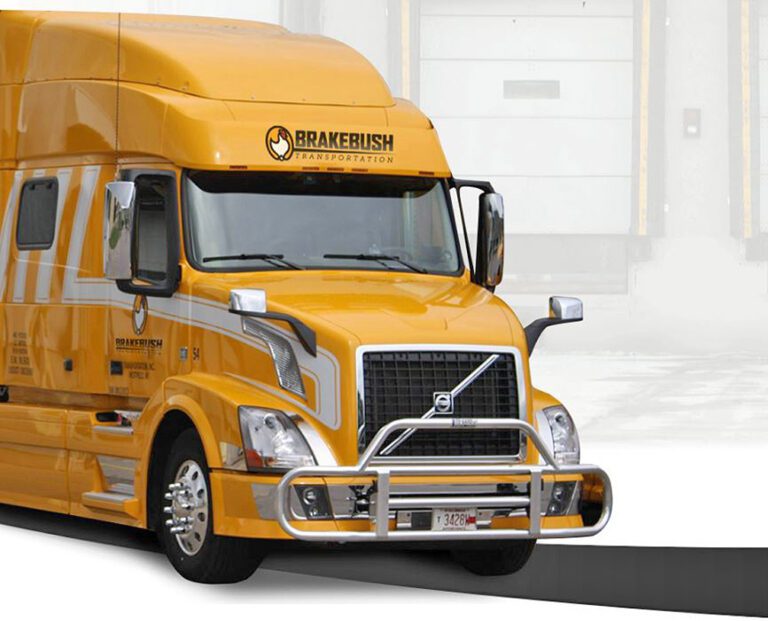COLUMBUS, Ind. — One segment of trucking that many don’t know much about is the private fleet category.
Private fleets are those whose parent company’s primary business isn’t trucking. Instead, the company’s focus might be on manufacturing or distribution of the products it produces — both to wholesale and retail markets.
About 50% of freight hauled by truck in the U.S. is hauled by private fleets.
Tom Moore, executive vice president of the National Private Truck Council (NPTC), helped clarify the role of private fleets in a presentation at the ACT Research OUTLOOK 69 Market Vitals, held Aug. 22-24 in Columbus, Indiana,
When freight rates rise, private fleets offer protection.
Because owners are hauling their own product, there are no “rates” — except possibly in internal departmental transactions. Often, a major cause of rising freight rates is a shortage of capacity in the market, so a private fleet helps ensure the company will have enough trucks and trailers to haul its product.
Joining Moore on stage was Michael Schwersenska, general manager of Brakebush Transportation. Brakebush, a manufacturer of chicken products, uses its fleet of 90 trucks and 230 temperature-controlled trailers to distribute its products to foodservice customers, such as restaurants and other businesses.
Moore and Schwersenska weren’t the only speakers to address the topic of private fleets, however, because private fleets impact every facet of trucking, including freight rates and vehicle sales.
Speakers on those topics and others also touched on the current growth of private fleets.
Schwersenska shared some of the benefits of private fleets, such as having control over the cost of logistics and the ability to monitor and control service levels. When manufacturers use the open market for transportation needs, they trust outside vendors with their products and their customers.
Private fleets usually have specific, regular pickup and delivery locations. These predictable routes can help companies retain drivers in a volatile market — another advantage. Driver turnover at private fleets is typically lower than the industry average.
Other benefits, such as increased safety performance and brand recognition, are also available.
Corporations spend a great deal of money on advertising to establish their brands, and a private fleet provides another branding opportunity. Trailers are often rolling billboards for the company’s products.
The area in which private fleets have the greatest impact on the overall market, however, is when they obtain for-hire authority. Private fleets do not need motor carrier authority from the Federal Motor Carrier Safety Administration to haul their own product; however, they must obtain authority in order to backhaul loads to help defray the cost of operation when returning their equipment to areas where their own freight is available.
Moore says less than half of NPTC members obtain for-hire authority. Those that do compete with other carriers for freight on the spot market, creating more competition for loads and helping drive rates lower. Because trucking isn’t their primary business, companies operating private fleets can be more concerned with repositioning equipment than with profit margin, helping keep rates down.
Private fleets also compete with public fleets for available equipment, purchasing a substantial number of the new trucks produced each year.
Moore noted that the increase in the number of warehousing and distribution centers has resulted in a decline in the average length of haul for private carriers. That results in the ability to offer better home time to drivers, helping with retention.
Because many of the routes for private fleets are between company facilities, mileage and other conditions can be more predictable. Alternative-fuel vehicles, such as natural gas or electric, might be an increasingly good choice for these fleets. According to Moore, 4.7% of trucks in the private fleet are powered by diesel alternatives.
However, there are drawbacks to private fleets. Some companies aren’t staffed or equipped for the maintenance required by a fleet of trucks and don’t want to expend the cash necessary to provide these services. There is also the question of recruiting, hiring and supervising drivers. Regulations require different documentation and filing practices, controlled substance testing and other actions that may differ from the rest of the company’s employees.
Some companies prefer to contract dedicated routes with motor carriers, gaining some of the benefits of private fleets while leaving the additional maintenance and human resources duties to the carrier. Dedicated routes are a popular option for drivers.
The growth of private fleets is an indication that businesses are expecting rates to rise and capacity to tighten in the market. For drivers who are looking for new driving jobs, a private fleet might be the perfect fit.
Cliff Abbott is an experienced commercial vehicle driver and owner-operator who still holds a CDL in his home state of Alabama. In nearly 40 years in trucking, he’s been an instructor and trainer and has managed safety and recruiting operations for several carriers. Having never lost his love of the road, Cliff has written a book and hundreds of songs and has been writing for The Trucker for more than a decade.











